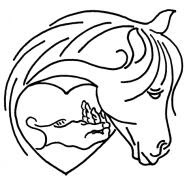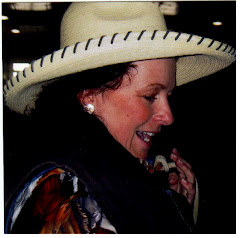
WIN YOUR HORSE'S HEART
(Be a Better Horseman)
Sherry's book will be available March first 2009
It is a must-read for those who love horses.
This is a "horse" book but really it is even more than that.
It is about building relationships with trust respect and love.
It is about self-acceptance, making choices, problem solving, and allowing for compromise.
It is about effective communication, leadership and confidence.
This is an important book about our self-discovery of the need for a makeover
for the way we think about and interact with horses.
A way which is more natural from the horse's point of view.
This book tells stories of life lessons which horses can teach us.
And how a good partnership improves our quality of life.
But most of all it is about winning a horse's heart in an unselfish way.
For ages the relationship between man and horse has been both positive and negative.
This is truly an amazing time in the horse world where horses are kept
more for their beauty and companionship than out of necessity.
We live in a time when a very few people can make a very big difference for horses everywhere. We hope you will help us make a difference in the lives of horses and horse lovers by ordering a copy and passing the word about this book along to your friends and associates.
Book Synopsis:
There are only two kinds of people, those who love horses and those who don't. This book is definitely for those who do love horses, whether you own one or not. Sherry's passion and love for horses has driven her to write a book which presents a way of being with horses which will change your way of thinking and acting so you can win any horse's heart. When a horse gives you his whole heart he will jump higher, run faster, stop quicker, slide further, spin better, and be safer. There is nothing you can't do together when a horse becomes a part of you. Dreams are sure to come true to those who follow the common sense principles presented in this book with real life stories to support the practices.
You will learn what it means to be natural with a horse and how to develop a working partnership. You will gain more knowledge and insight about attitudes which can help eliminate frustrations with horses. You will discover practical ways to overcome fears, build confidence, communicate more effectively and become the kind of leader your horse needs you to be. The personal horse stories will touch your heart as you realize that winning a horse's heart is the ultimate prize in horsemanship.
The book will be available the first of March. You can get it on Amazon.com and Barnes and Noble














